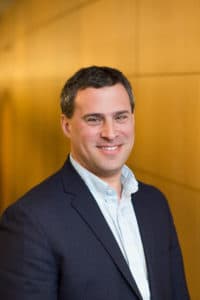-
23 August 2017
This story originally appeared in Washington Jewish Week.

Internal
It may not be the quickest turnaround time in history, but given the little more than two weeks between his appointment Wednesday night and an Aug. 31 start date, Gil Preuss appears more than ready to hit the ground running when he takes the helm of the Jewish Federation of Greater Washington as its new executive vice president and CEO. Preuss, a Jewish community veteran with 15 years’ experience as an administrator of communal institutions, comes to the Federation’s offices in North Bethesda from the Northeast, where for the last seven years he’s been the executive vice president of Combined Jewish Philanthropies of Greater Boston.
Preuss, who spent a good deal of his childhood in the area, says he is energized by a return to a community he feels can better capitalize off of its location in and around the nation’s capital to influence Jewish communities elsewhere in the United States.
“For me, this is in many ways coming back to a community where I have been coming to for many years,” the father of four said in an interview in the organization’s conference room off of Executive Boulevard. “But more importantly, this is Washington, D.C. This is the Jewish Federation of Greater Washington. The importance of this community, the importance of having a strong Jewish community in greater Washington — it’s almost the most important community of any in the country.”
Preuss’ hiring caps a search process that started back in November.
Gary Berman, a Federation co-president and co-chair of the search committee, praised what he said was a “focused” and “intentional” process that ultimately produced a well-qualified visionary whom it is hoped will remain in Washington for the remainder of his career. (Preuss’ initial contract is for three years, a standard length for such agreements in the Jewish professional world.)
“We went through a very extensive and, what for me was, a long process,” said Berman. “When we started interviewing people, after the second interview, it became clear to us that Gil had the experience, the personality, the excitement and the warmth that we were looking for.”
Fellow co-president and search co-chair Liza Levy agreed.
“The search went way outside the federation system. We looked at for-profit and non-profit leaders. We really dug deep,” she said. “I think Gil really spoke a language that resonated with everyone around the table.”
Preuss, who holds a B.S. degree from the University of Michigan, an M.S. degree from Cornell University and a Ph.D. from the Sloan School of Management from the Massachusetts Institute of Technology, originally did not see himself as a Jewish community professional. He was an assistant professor at Case Western Reserve University in Cleveland when an acquaintance approached him about working for the Jewish federation there.
“I’ve always been involved in the Jewish community,” he noted, but prior to joining the Jewish Community Federation of Cleveland to manage its allocations, it had been as a layman.
His parents moved the family to Israel when he was 3, and he lived in the Ramat Eshkol neighborhood of Jerusalem until he was 10. Upon the family’s return, Preuss was a regular in Zionist youth groups and summer camps. He estimated that he’s spent a collective two years of his life as a camper at Jewish camps. In Cleveland, he was president of his synagogue. (With one child finishing her senior year at the University of Rochester and another spending a gap year in Israel, the other two Preuss children will attend the Charles E. Smith Jewish Day School. Preuss’ wife, Terri Brown Preuss, is the national director of the Hadassah-Brandeis Institute Conversations program.)
“I was always heavily involved in the Jewish community, but not professionally,” he said. When the Cleveland federation job opened, “I loved the impact I could have about things I cared about in the Jewish community.”
Here in Washington, Preuss identified increasing access to the communal resources he had as a child — travel to Israel, Jewish education, overnight camp — for an increasing percentage of less-affiliated Jews as a top priority for the American Jewish community.
“Overnight Jewish camping is something I deeply believe in,” he explained. “Israel trips — how do we get more people to visit Israel, on Birthright or otherwise?
“There are strategies out there,” continued Preuss. “Sometimes we need new ideas, but sometimes it’s more about how to take an existing idea that works and expand it. Day schools, camps, Israel trips have worked for years, all the data shows.”
Preuss also identified strengthening institutions and bringing the disparate parts of a community that spans Northern Virginia, downtown D.C., and Maryland’s Montgomery County and parts of Howard and Prince George’s counties together as top priorities. As with any top federation job in the United States, strengthening the annual fundraising campaign is also essential, he said.
“It’s not that different in Boston,” Preuss noted, pointing out that that community stretches from the downtown area to the North Shore, the western suburbs and out to Cape Cod. “How do we engage all of those different regional communities to strengthen who they are in their own right, but also come together as part of a vibrant whole?”
The need for unity extends beyond the regional to the ideological sphere, he added.
“As a Jewish community, we have to come together. These divisions pulling us apart will only damage us as a people,” he said, referring to the political and religious fights that have fractured American Jewry on a level perhaps unseen in decades. “Particularly here in Washington, we can be a model of a community coming together. … It doesn’t mean we have to agree with each other, but we have to be able to talk about the issues we face together.”
